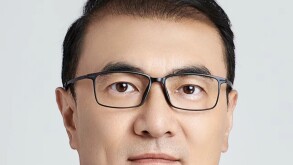Since the beginning of this year following law n° 20104‐315 of March 11 2014 reinforcing the battle against counterfeiting, an article was introduced in the Intellectual Property Code regulating the IP profession stipulating that all qualified patent and trade mark attorneys (conseils en propriété industrielle) need to dedicate a significant part of their time to professional training.
This decision has been preceded by a hefty debate between professionals claiming that such an obligation should not be regulated but left to the initiative of each individual, and those claiming that it is a must, testifying to a strong willingness to maintain a high level of expertise all along one's career as an IP attorney.
The article L422‐10‐1 of the Intellectual Property Code stipulates that all French IP attorneys have to spend (at least) 20 hours per calendar year on on professional training.
Interestingly, four types of intervention can be taken into account to fulfil this obligation.
First of all one can fulfil this obligation by participating in training such as academic seminars or courses related to IP ‐ think of law changes or case law evolutions. Note that seminars or courses given by a qualified patent or trade mark attorney outside an academic environment can also qualify. It gives IP attorneys the possibility to follow specific training referring to specialised matters not (yet) dealt with by the academic world. Luckily the hours one commits to acting as a speaker on IP or teacher in the matter also count.
Finally, publishing articles or work related to IP, are also valid to comply with this training obligation The Compagnie Nationale des Conseils en Propriété Industrielle (CNCPI) will assess whether the
training obligation has been fulfilled by the IP practioners. However, the legal framework detailing the control of such obligation and the nature of the potential sanctions in case the obligation is not fulfilled still needs to be set up. For the most proactive French law firms these new rules just confirm what they are already promoting internally. On a wider scale, it shows the willingness of the French IP profession to ensure its expertise is continuously developed and kept up to date in an ever changing world.

|
Jean‐Christophe Rolland |
Gevers & Ores41, avenue de FriedlandParis 75008, FranceTel: +33 1 45 00 48 48Fax: +33 1 40 67 95 67paris@gevers.euwww.gevers.eu










